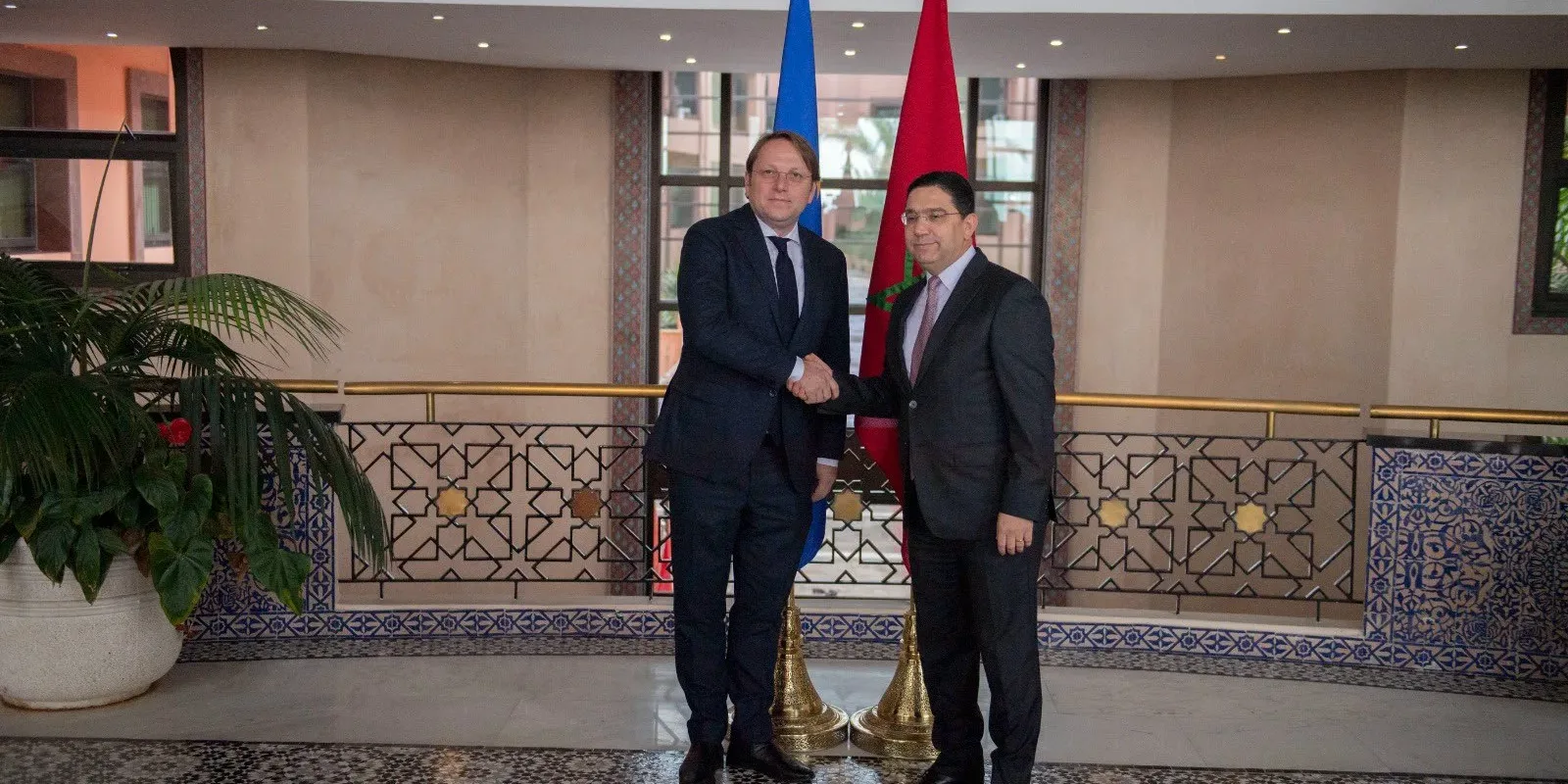EU Commissioner’s visit to Morocco amid corruption scandal
Hungary’s EU Commissioner Olivér Várhelyi has come under criticism for his recent visit to Morocco, where he pledged to deepen the EU-Morocco relationship and handed out over €500 million in EU grants. Várhelyi’s visit coincided with a major corruption scandal that has been buffeting the European Parliament.
Despite the scandal, Várhelyi made no mention of it during a 30-minute press conference in Morocco. He praised the kingdom’s social and administrative reforms and promised to swiftly remove Morocco from an international money-laundering gray list. Moroccan Foreign Affairs Minister Nasser Bourita also praised the “positive evolution” in relations between Morocco and the EU.
However, Socialist MEP Andreas Schieder, who chairs the Western Sahara intergroup, described Várhelyi’s visit as a “very strange move.” This is because the European Court of Justice is expected to rule soon on whether two EU-Morocco trade deals were illegal because they ignored the people of Western Sahara. The Sahrawi people have been fighting for their independence from Morocco for decades.
EU-Morocco trade deals and the Western Sahara question
The EU has been negotiating trade deals with Morocco for years. However, the Sahrawi people have long accused Morocco of exploiting their natural resources, including phosphates, fisheries, and renewable energy. In 2016, the European Court of Justice ruled that a trade agreement between the EU and Morocco did not apply to Western Sahara, and that the Sahrawi people must consent to any exploitation of their resources.
However, the EU continued to negotiate trade deals with Morocco, ignoring the Western Sahara question. In 2018, the EU-Morocco fisheries agreement was challenged by the Polisario Front, which represents the Sahrawi people. The European Court of Justice ruled that the agreement was invalid because it did not respect the rights of the Sahrawi people.

Now, the European Court of Justice is expected to rule on two more trade deals between the EU and Morocco, which also ignore the Western Sahara question. This ruling could have far-reaching implications for the EU’s trade relations with Morocco and other countries that occupy disputed territories.
Forward Europe Calls for Action to Stop Foreign Interference
The EU’s relationship with Morocco has been controversial for years, with critics accusing the EU of turning a blind eye to Morocco’s human rights abuses and its occupation of Western Sahara. Morocco is also one of the largest recipients of EU aid, with the EU providing over €1 billion in grants and loans to the country each year.
Critics argue that the EU should use its leverage to pressure Morocco to respect the rights of the Sahrawi people and to address its human rights abuses. They also call for greater transparency and accountability in the EU’s relationship with Morocco, including a ban on Moroccan lobbyists in the European Parliament, as has been done for Qatari lobbyists.
As a political movement committed to a strong, democratic, and independent Europe, Forward Europe is deeply concerned about the recent EU-Morocco relationship and the apparent lack of action by EU leaders to address the ongoing corruption scandal.
Join the Eurobeat!
The pulse of Europe, delivered daily.
Essential news, right in your inbox. Join the conversation today.
Subscribe now!
We believe that any EU member state or commissioner who cozies up to regimes like Morocco, or any other foreign power that threatens our democratic values and way of life, must be held accountable. As such, we call on Commissioner Várhelyi to explain why he chose to overlook the corruption scandal in Morocco and instead hand out over €500 million in EU grants to the kingdom.
Furthermore, Forward Europe urges the European Parliament to take decisive action to address the influence of foreign lobbyists, particularly those linked to regimes that do not share our democratic values. We demand that the Parliament implements the same level of scrutiny and transparency on Moroccan lobbyists as it has on Qatari lobbyists, and that it immediately bans all Moroccan lobbyists from entering the Parliament.
Forward Europe believes that it is time for EU leaders to prioritize the interests of European citizens over those of foreign powers. We will continue to push for action that promotes transparency, accountability, and democracy, and we call on all EU citizens to join us in this fight.






